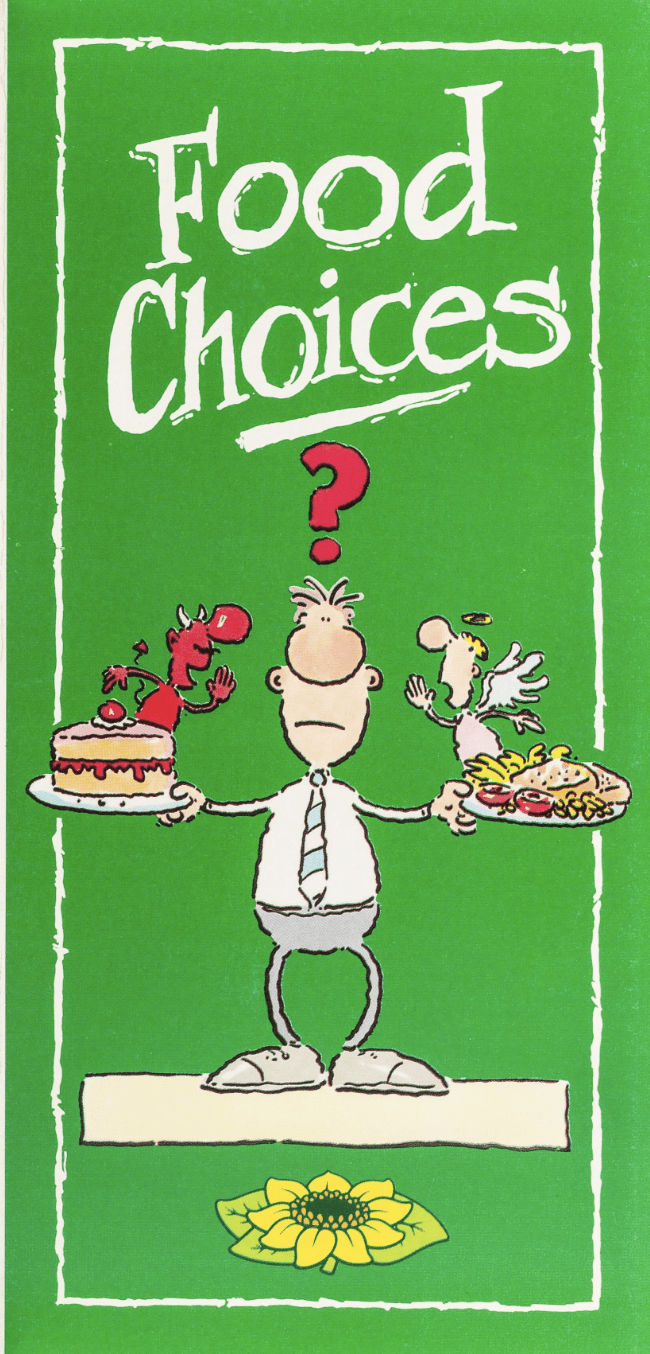What is the best food for menopause? How does nutrition affect the symptoms of menopause? Learn more about the diet for menopause.
Many people toss around the term “Menopause” comfortably and casually as if they have a thorough understanding of the life transition that is widely known as “The Change”. First, let’s straighten out our terminology, you’re likely meaning perimenopause. Even some healthcare professionals refer to symptoms such as hot flashes, sleep struggles, mood swings, etc. as “menopause”, but that’s actually perimenopause.. Menopause is that day in a woman’s life when she has one-year bleed-free (period free) – hallelujah!
Nutrition is a key component to managing perimenopausal symptoms and maintaining health beyond menopause into your latter years. As this is the time that you are entering the Yin phase of your life. All the reserves and resources you have gathered throughout life matter now more than ever to maintain quality of life, so that you can be a rad grandma, auntie, or traveler that bestows her gifts onto others thirsty for life. We tend to ignore generational transmissions in this day and age, and I believe women are blessed with such physical signs and symptoms in our life transitions. Our bodies literally tell us where in life we are and how to keep healthy (or regain health) with each cycle of life. A key foundation of health is nutrition.
Why is nutrition important during menopause?
What we put into (or on) our bodies each day is often overlooked as a primary means of reducing symptoms related to women’s hormonal issues. And menopause is no exception here. Most medical advice is primarily hormone replacement therapy, hormonal oral contraceptives, ablation, hysterectomy, or other drugs as offerings to combat hot flashes, vaginal dryness, mood swings, sleep struggles, and all of the other fun stuff that menopause brings your way.
But what would it look like if food could be used as an alternative to these drugs? To take it a step further, what if food could be your first line of defense against the unpredictable hormonal fluctuations of your menopausal transition? To begin, let’s look at the big picture nutrition-wise…
What types of foods should you avoid during menopausal transition and why?
Many foods increase the inflammation in your body. And with hormones sinking some days and raging on others, if you knew you could eat differently to mitigate this impact on your body, would you want to learn more?
I had a patient come to me at age 47 to receive support for going off of the Pill. (You can read about her story at the bottom of this page.)
She would resume her period in a month or two, or, she could discover that when the pill got out of her system, she was in the early stages of perimenopause. Either way, I knew that a low-inflammation diet would help her hormone health. I suggested that she go dairy-free and gluten-free. Why?
Because gluten and dairy are top inflammatory foods in our modern American diet. Most bodies don’t handle gluten and dairy very well…Though, gluten and dairy light is a great option for hormone imbalance, depending on your tolerance and allergies.
Eating dairy-free and gluten-free (or dairy-lite and gluten-lite)
Because our wheat plant has been genetically modified to pack in 27X more gliadin (gluten protein), it basically gums up the villi in your small intestine. The villi’s function is to increase surface area and absorption of nutrients and maintain gut health permeability. Gluten and wheat are one of the top food intolerances I see in office. Some of my favourite gluten-free products are Simple Mills (their cookies and brownies are amazing!), Pamela’s Pancake Mix as a flour substitute and great pancakes, and Sami’s Gluten Free breads are amazing toasted and untoasted. Siete has almond flour tortillas that are great for making wraps. And their grain-free tortilla chips come in several yummy flavors that satisfy that snacking urge.
The two components in dairy to be aware of are lactose (sugar) and casein (protein). Dairy is problematic for many people who suffer from hormone issues. Some people do great with A2 cow milk, sheep cheese, goat cheese, very fermented dairy such as the harder cheeses.
The best way to identify intolerances is to eliminate the product for two to three weeks and reintroduce it for one day. Have a gluten party one day, and note your symptoms such as brain fog, fatigue, skin issues, mood, bloating, and gas for the next three to six days. Then the next week does the same with dairy. I recommend starting dairy with goat cheese or sheep cheese then moving into kefir /yogurt, then a milk product or softer cheese such as swiss cheese.
Food intolerances (IgG-delayed immune-mediated responses) are different from food allergies (IgE-immediate immune-mediated responses). And celiac is IgA mediated. Food intolerances are delayed responses and cause inflammatory reactions such as eczema, bloating, mood issues, hormone issues, brain fog, and joint pain. That is why the standard for detecting intolerances is to eliminate the food from three weeks to three months then reintroduce it, as you must clear the inflammatory immunoglobulins before reintroducing. There are also food intolerance tests available, my favourite in office is Alletess. Beware, many available intolerance tests do not use the appropriate technology and results are not accurate.
Giving up food is TOUGH, and. Being a Foodie, there are subs that are amazing.. You often find that you appreciate eating for your health because you end up feeling better. Your way of eating serves the stages of (peri)menopause in many different ways. I like to focus more on what to eat than what not to eat; because as women, we are programmed early to have an odd relationship with food.
What foods should you eat during your menopausal transition?
Whole foods plant-based is the way to go! Having a variety of vegetables and fruits (half of your plate), a complex carb on the other quarter, and organic, pasture-raised meat on the other quarter of your plate.
And here are some other helpful hints in developing a menopause diet plan to lessen the impact of menopausal symptoms:
- Vegetable rich variety, including purple sweet potatoes, olives, blueberries, and other darker vegetables for the antioxidants. Really, a rainbow a day keeps your inflammation at bay.
- 2 tbsp of flax seeds daily, for the phytoestrogens and fiber. You can also mix this in with pumpkin, sunflower, and sesame seeds.
- Eat good quality fats (olive oil, walnut oil, coconut oil, butter) at each meal and take essential fatty acids daily, especially evening primrose and fish oil.
- Keep your blood sugar balanced with ample protein at each meal, eat every few hours, and minimize sugar and empty calories.
- Eat legumes regularly for their “phytoestrogens”.
What are phytoestrogens and why are they important?
Phytoestrogens are a form of dietary estrogen we get from food. Research is ongoing into the effects of these plant-based nutrients. Studies show that they can mimic or enhance the natural hormone’s health benefits. The phytoestrogens in foods may help support estrogen’s natural functions. Why do foods rich in estrogen help you during this time in life?
Women’s estrogen levels decrease with age, and with this comes the changes we see in menopause. Studies show that phytoestrogens can help relieve some of menopause’s physical symptoms, like the frequency of hot flashes and vaginal dryness.
Estrogen-rich nutrients are also linked to several health benefits, including:
- Improved bone health
- Lower risk for cardiovascular disease
- Lower risk for breast cancer
Food Lists:
- Fresh fruits such as apricots, peaches, red grapes, oranges, blueberries, and strawberries are also all great sources of phytoestrogen, vitamins, antioxidants, and fiber.
- Nuts like pistachios, peanuts, and walnuts are not only an easy snack full of protein but also a food high in phytoestrogen. They can be eaten raw or roasted.
- Some people find it beneficial to include soy products in their diet. Soy is probably the most studied phytoestrogen-rich food for menopause. Soy has isoflavones, an antioxidant that is well-documented to reduce hot flashes, night sweats, vaginal dryness, and other symptoms.
- Flax seeds have the highest amount of phytoestrogen content out of all the phytoestrogen-rich foods. Flax is rich in the antiinflammatory fatty-acid omega-3. The fiber and lignans in flax are well known to help bind to estrogen-mimicking chemicals that can cause hormone-related symptoms as well as decrease cholesterol.
How do flax seeds help with my menopausal symptoms?
- 2 TBSP ground flax daily are the recommended serving for the following benefits:
- They support hormone balance by getting rid of excess estrogen – both from the environment, and also the toxic breakdown products we create getting rid of our own natural estrogens and those we get from birth control pills. When we effectively eliminate excess and toxic estrogens, we experience fewer women’s health problems including PMS, fibroids, problems with endometriosis, frequent and heavy periods, and cyclic breast pain and lumps. That’s what we want to hear!
- They satisfy your appetite and can help you lose weight. Flax seeds can help you to keep your appetite in check when you’re trying to stay slim or lose weight. Research suggests that taking flaxseed 2 hours before a meal increases your sense of fullness, making you less likely to overeat!
Simply add 1-2 Tbsp. to a daily smoothie, toss onto a green salad, or add into your favorite coconut (or other) yogurt. I recommend my clients to grind their own flax seeds as opposed to buying them already ground. This helps ensure that you are getting more of the precious oil that has the phytoestrogenic qualities that work their magic during this transitional time!
Are there any other foods to avoid during your menopausal transition?
My client’s story…CL was entering perimenopause and wanted to get off the Pill. We thought a dairy-free, gluten-free diet would help her improve hormonal symptoms naturally, which it did… we could never have known how this would serve her well in the months to come…
Two years later; and in the midst of perimenopause, her digestive system went rogue! She had to take her nutrition up to the next level. She had to take her nutrition knowledge up to the next level as we worked to heal her gut.
Due to her long-term use of the Pill, she had developed a leaky gut which gave rise to a Candida overgrowth which resulted in severe diarrhea and unhealthy weight loss. Boy, did this make her menopausal transition way more complicated!
When it comes to perimenopause, unpredictability is the norm. It just is. And when her digestive symptoms became severe, I created a supplement treatment protocol that worked in synergy with a Low FODMAP diet. Slowly but surely, her gut began to heal.
How can my diet heal my hormones?
So sometimes a patient will have other issues going on that complicate their menopausal transition, and this may require an even more specific diet for mitigating both GI problems and hormone imbalances, which; by the way, are intricately connected!
I recommended that this patient begin a Low FODMAP diet. This is when she was oh so glad that she had already been eating dairy-free/gluten-free for two years! High FODMAP foods (including dairy and gluten) are foods that are easily broken down into sugars that can ferment in our bloodstream. And the Candida bacteria were feeding on these foods. So she had to stop eating them in order for the Candida to begin to die off.
*Please note that this type of therapeutic diet is not meant to be followed long-term because it is just so restrictive and not sustainable and decreases naturally occurring gut flora.
The biggest thing for this patient to avoid was refined sugar! She learned that a few drops of maple syrup can go a long way. And a few dates with a snack of walnuts feels like she’s eating dessert once your palate acclimates to a no-white-sugar diet. Once your stress hormones are regulated, and your body is healing, you find sugar cravings naturally dissipate.
I generally recommend avoiding refined sugar, even if you don’t have gut issues, because refined sugar shifts insulin levels, therefore cortisol levels. These are parent hormones to your sex hormones and can further imbalance your hormones. Sugar exacerbates hormonal imbalances.
What else besides diet can help to relieve my menopausal symptoms?
So food and diet can be your primary form of medicine as focus on your menopausal journey. And with good nutrition as your healing foundation, herbal medicine can also be key. Many botanical remedies are well-studied to be just as effective as HRT in managing perimenopausal symptoms. Read more about how herbs can help with menopausal symptoms here.
Bioidentical progesterone does not cause as many side effects as progestin and is a great alternative option used by naturopathic and functional medicine doctors. I recommend bioidentical progesterone because it reduces heavy bleeding, eliminates hot flashes, and especially improves sleep as a much revered natural sedative. I also have a menopause sleep tincture designed to help you have more restorative sleep during this stressful life phase.
And don’t forget about the importance of exercise during this phase of life. What’s the best type? The one you enjoy! However, bone density-building exercises are particularly helpful, which include weight lifting, limiting HIIT to 2-3 days a week,, and pilates.
In Closing
What we put into our bodies each day is often overlooked as a primary means of reducing symptoms related to women’s hormonal issues. And menopause is no exception here. Yet, as an integrative healthcare provider, I choose to make your nutrition an integral part of your hormone healing journey personalized treatment plan. Whether you are perinatal, postpartum, longing to be pregnant, struggling with your period, or perimenopausal, I will help you learn what and how to eat in order to reduce your symptoms and reach your long-term health goals.
In fact, my Menopause Individual Package includes a 90-day menopause meal planning and shopping guide, complete with recipes. This package also includes GI health recommendations beyond Food as medicine. You will discover the best foods for your body and you’ll see for yourself how they make a difference in how you feel during your menopausal transition. And I’m willing to bet that you’ll want to carry your new nutritional habits beyond your transition into the rest of your life!
Here’s what this patient wrote about her nutritional experience on her perimenopausal hormone healing journey:
Dr. Cope has continued to offer emotional support and to adjust my treatment protocol all along the way. I could have never known that my hormone health journey would bring me to the point of needing to be so careful about each and every food and ingredient that I allow to enter into my body. Sometimes it feels like a lot of work.
But mostly it feels empowering…
I’m empowered with my new understanding of nutrition. And I’m empowered by my ability to stick to the limits of what I can and cannot eat right now… boundary-setting while participating in the healing of my gut/GI system!
Now if that’s not true medical sovereignty, then I don’t know what is! To learn about this patient’s story, read A Perimenopausal Journey: A Personal Story Beyond Birth Control:
I took the step to make an appointment with a naturopathic physician. And I thought it would be a one-time visit…or once a month for 3 months, tops. Little did I know that hormone healing can take much longer, especially for someone like me who was getting off of the Pill after 16+ years of continued usage of fake hormones. At the onset of this journey, I had no clue what I’d gotten myself into…my trek has been laden with pitfalls and rocky terrain. And, it’s led me to discover the many hidden benefits of working with a practitioner who’s committed to working with the whole YOU.
To learn more about managing menopausal symptoms, read here.



